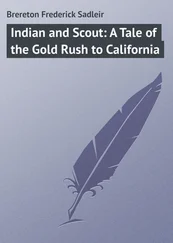Frederick Brereton - The Hero of Panama - A Tale of the Great Canal
Здесь есть возможность читать онлайн «Frederick Brereton - The Hero of Panama - A Tale of the Great Canal» — ознакомительный отрывок электронной книги совершенно бесплатно, а после прочтения отрывка купить полную версию. В некоторых случаях можно слушать аудио, скачать через торрент в формате fb2 и присутствует краткое содержание. Жанр: foreign_prose, foreign_children, на английском языке. Описание произведения, (предисловие) а так же отзывы посетителей доступны на портале библиотеки ЛибКат.
- Название:The Hero of Panama: A Tale of the Great Canal
- Автор:
- Жанр:
- Год:неизвестен
- ISBN:нет данных
- Рейтинг книги:5 / 5. Голосов: 1
-
Избранное:Добавить в избранное
- Отзывы:
-
Ваша оценка:
- 100
- 1
- 2
- 3
- 4
- 5
The Hero of Panama: A Tale of the Great Canal: краткое содержание, описание и аннотация
Предлагаем к чтению аннотацию, описание, краткое содержание или предисловие (зависит от того, что написал сам автор книги «The Hero of Panama: A Tale of the Great Canal»). Если вы не нашли необходимую информацию о книге — напишите в комментариях, мы постараемся отыскать её.
The Hero of Panama: A Tale of the Great Canal — читать онлайн ознакомительный отрывок
Ниже представлен текст книги, разбитый по страницам. Система сохранения места последней прочитанной страницы, позволяет с удобством читать онлайн бесплатно книгу «The Hero of Panama: A Tale of the Great Canal», без необходимости каждый раз заново искать на чём Вы остановились. Поставьте закладку, и сможете в любой момент перейти на страницу, на которой закончили чтение.
Интервал:
Закладка:
"And here we have to start right off again," said Jim, discussing affairs with his sister. "That five hundred dollars will have to be drawn upon for clothes and other things, seeing that we lost everything with the ship. It'll mean I shall have to be quicker in getting a job when we reach New York. But don't you fear, Sadie; somehow I've a notion that our fortune is about to improve. Things are looking brighter."
They watched the steamer slowly berthed, and then made for the gangway. Bidding farewell to the skipper and the crew, with whom they had become most friendly, they were about to make their way ashore when the man whom Jim had rescued accosted them.
"I've fixed rooms for you all," he said. "You'll not disappoint me, will you? I've a house away up on the hill, and there's heaps of room."
"But – but we're going on direct for New York," cried Jim, astonished at the proposal.
"No doubt, sir; no doubt. But then there don't happen to be a steamer for a week, and Colon's a bad place to rest in. You'll oblige me by coming. I ain't had a chance, so far, of thanking you and the others for what you did. You'll surely give me a chance to get to know you better. Come and stay for a week till the steamer puts into port."
It may be imagined that Jim eagerly accepted the invitation, and, accompanied by Sadie, Tom, Sam, and Ching, took up his quarters with this new friend. Not for a moment did he guess that this week's delay would make a vast change in his future. His eye at the moment was fixed on New York, where he hoped to make that fortune of which he had laughingly spoken. He never imagined for one instant that the Isthmus of Panama would detain him, and that there he would join his compatriots, the Americans, and with them would take his share in that gigantic undertaking, the Panama Canal.
CHAPTER IV
Relating to Phineas Barton
Phineas B. Barton was in his own way an extremely pleasant and jolly man, but he required a great deal of knowing. He was moderately tall, clean shaven, as is the typical American of to-day, fairly good-looking, and about forty years of age. When he liked he could be voluble enough, but as a general rule his conversation was chiefly noteworthy by its absence; for Phineas was undoubtedly prone to silence and taciturnity.
"It's like this," he explained to Jim; "I'm boss at the present time of the foreign labour we employ on the Panama Canal works, and guess I have to talk most all the day when I'm at work. So a fellow gets used to keeping his mouth shut at other times, so as to rest his jaw. Glad you're coming out to my quarters."
He had thanked Jim quietly and with apparently little feeling for his action in plunging into the sea to save him when the steamer foundered, and after that had said not a word. But that did not imply that Phineas was ungrateful. It was not in his nature to employ many words; he had decided to show his gratitude in other ways. It was for that reason, no doubt, that he had invited our hero to his house. And, now that the whole party had disembarked, he proceeded to lead the way.
"Got any traps?" he asked.
"Not a stick," Jim answered. "We're here as we stand up."
"Then transport isn't a difficulty. It's nine miles to my quarters, and the railway will take us there quick. There's cars going one way or the other most always; come along to the terminus."
Jim and his comrades had no idea of the work which was going on on this narrow isthmus of Panama, therefore the reader may imagine that he was intensely surprised, once he and his friends had left the one-storied dwellings of Colon, to find human beings seething everywhere. Bands of labourers of every colour were working along the route where the canal would open into the Caribbean, while heavy smoke and the rattle of machinery came from another spot farther on.
"Where we're getting to work to cut our locks," explained Phineas, nursing his broken arm. "It's there that I broke this arm of mine two weeks ago. I was fool enough to get in the way of a dirt train, and of course, not having eyes itself, it shunted me off the track with a bang. That's why I was on my way back to the States; but guess that holiday'll have to wait. I'm keen to get back to work."
From the open car in which the party was accommodated he pointed out the various features of the isthmus, and in particular the works of the canal. And gradually Jim gathered the fact that this undertaking upon which his country had set its heart was gigantic, to say the least of it.
"No one knows what we're doing save those who've been here," said Phineas, a note of pride in his voice. "Back home there's folks ready enough to criticize and shout that things aren't being done right; but they ought to come right out here before opening their mouths. You've got an idea of the canal, of course?"
Jim reddened. To be truthful, his own struggle to make a way in this world had occupied most of his attention. He was naturally interested in all that concerned his own country, but even though so near to the isthmus he had never been farther than Colon when the ship put into port, and whilst there had merely observed rather a large number of policemen, both white and black. Of the huge army of workmen engaged in the canal enterprise he had not caught a glimpse.
"It's an eye-opener, this," he admitted. "I had no idea there were so many men, or so much machinery, though if I had thought for a little I could have guessed that there must be a bustle. As to the scheme of the canal, I haven't more than the vaguest idea."
"And I can't give you much information here. We'll want to get aboard an inspection car and run right through. That'll be a job for to-morrow. We'll have the inspector's car, and run along to the other side. But, see here, this canal's the biggest thing in canals that's ever been thought of. The Suez Canal don't hold a candle to it. The Kiel Canal is an infant when compared with what this will be when it's finished. There's fifty miles, or thereabouts, of solid dirt between Colon and Panama, and America has decided to get to at that dirt and cut a way clear through it, a way not only big enough to take ships of to-day, but to take ships of to-morrow, ships that'll make the world open its eyes and exclaim."
The very mention of the work made Jim gasp. He asked for particulars promptly. "It'll take a heap of time, I expect," he said. "Reckon a canal a mile long and fifty feet wide by thirty deep isn't dug in a day."
"Nor hardly in a year. But we're not digging all the way," explained Phineas. "America has selected what is known as the high-level canal; that is, she's not just digging a track clear through from Atlantic to Pacific, a tide-level canal as you might call it, for there are difficulties against such a scheme. To begin with, there's a tide to be reckoned with at Panama, while this Atlantic end has none; which means your water level at the Pacific side is different from that at the Atlantic. Then there's river water to be contended with. This isthmus gets a full share of rain, particularly near the Atlantic, and the rivers get packed with water in a matter of a few hours. Well, you've got to do something, or that flood will swamp your canal, wash away your works, and do other damage."
"Then the high level has fewer difficulties?" asked Jim.
"You may say so, though the job is big enough in all conscience. Shortly put, it's this. We begin the canal by dredging in Limon Bay, right here beside Colon, and cut our dirt away, in all for a matter of just over seven miles. Then we build three tiers of double locks, which will take any vessel, and which will float them up in steps to the 85-foot level. Once up there the ship steams into a huge lake where there's dry land to-day. We get that lake by damming the Chagres River right there before us, at Gatun, throwing the water back into a long natural hollow, and when the work is finished we shall have a body of water there four-fifths the size of Lake Geneva. Anyway, it'll allow a steamer to get along under her own power till she arrives at the other end of the lake at Obispo. Even then she uses her own power, though she has to slow down. She enters what we call the Culebra cut, just nine miles long, where we are burrowing our way through the hills. That's one of the biggest of our jobs. You'll be interested when you see it. We've a small army of men at work, and rock drills and steam shovels are going all day, while dirt trains travel to and fro more often than electrics in the New York subway. Then comes a lock at Pedro Miguel, and another at Milaflores, which let our ships down to Pacific level. Way down at that end we've a lot of dredging to do to clear the below-sea track of the canal."
Читать дальшеИнтервал:
Закладка:
Похожие книги на «The Hero of Panama: A Tale of the Great Canal»
Представляем Вашему вниманию похожие книги на «The Hero of Panama: A Tale of the Great Canal» списком для выбора. Мы отобрали схожую по названию и смыслу литературу в надежде предоставить читателям больше вариантов отыскать новые, интересные, ещё непрочитанные произведения.
Обсуждение, отзывы о книге «The Hero of Panama: A Tale of the Great Canal» и просто собственные мнения читателей. Оставьте ваши комментарии, напишите, что Вы думаете о произведении, его смысле или главных героях. Укажите что конкретно понравилось, а что нет, и почему Вы так считаете.












